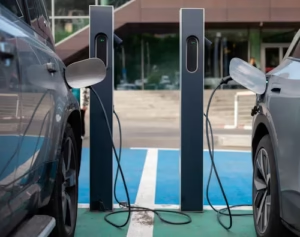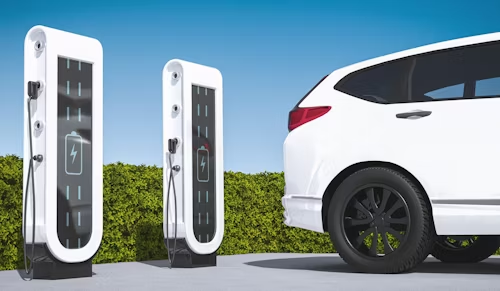Introduction
Electric utility vehicle are essential to industries involved in agriculture, construction, or commercial transport. In 2023, there is are increasing demand for better and greener solutions, so the demand for utility vehicles is rising. The first trend is into the electric utility vehicles sector, which are more environmentally friendly than the traditional gas-guzzling utility vehicles that came before. This article will compare electric versus gas utility vehicles. You will discover the costs, performance, pros and cons, and best applications of each type. If you are the owner of a commercial warehouse or a building, or if you own a farm, this guide will illustrate the differences so you can choose the right vehicle for your needs.
What Is a Utility Vehicle?
 Definition and Use Cases
Definition and Use Cases
Utility vehicles are often classified by the common function of use—they typically move goods, equipment, or personnel. The vehicles are used in trades on farms, industrial settings, warehouses, or campuses, to name a few applications.
Difference Between Utility Vehicles and Standard Cars
Utility vehicles are not typical automobiles, which are produced primarily for single individuals. Utility vehicles are designed and manufactured with a focus on being durable, strong, and versatile.
Classification: Gas-Powered vs Electric
Utility vehicles have two general classes: gas-fueled vehicles (petrol or diesel-fueled vehicles) and electric-powered vehicles (battery-powered).
Overview of Gas Utility Vehicles
Key Features of Gas Utility Vehicles | Electric utility vehicle
Gas-powered utility vehicles utilize internal combustion engines powered by gasoline or diesel. They provide good performance and towing capacity but require regular maintenance, including oil changes and filter replacements.
Pros of Gas Utility Vehicles
- They provide additional utility for heavy-duty work with higher towing capacity.
- They can quickly get refueled, as there is more access to gasoline stations.
- They provide a variety of models based on their sustained presence in the marketplace.
Cons of Gas Utility Vehicles
- They are subject to increased fuel costs as the market price is constantly fluctuating.
- They produce discharges that contain greenhouse gases harmful to the environment.
- They require maintenance, which adds to their operational costs.
Overview of Electric Utility Vehicles
Key Features of Electric Utility Vehicles
Electric utility vehicles (or e-utility vehicles) are driven by an electric motor and rechargeable batteries. They run smoothly with fewer mechanical parts and require less need for maintenance.
Pros of Electric Utility Vehicles | Electric utility vehicle
- They create zero emissions and contribute to reduced environmental effects.
- They reduce operating costs due to the price of electricity versus fuel.
- They operate silently and frequently include new technologies.
Cons of Electric Utility Vehicles | Electric utility vehicle
- They have a limited range compared to gas vehicles, especially when heavily loaded.
- The charging infrastructure is limited in certain areas.
- They frequently have a more expensive upfront purchase price, but there could be incentives.
Side-by-Side Comparison: Gas vs Electric Utility Vehicles
|
Feature |
Gas Utility Vehicle |
Electric Utility Vehicle |
|
Fuel Type |
Petrol/Diesel |
Electricity |
|
Operating Cost |
Higher |
Lower |
|
Emissions |
High |
Zero |
|
Maintenance |
Frequent (oil, filters) |
Minimal |
|
Range |
Long |
Improving but limited |
|
Performance |
Powerful (for towing) |
Smooth & silent |
Which One Is Right for You in 2025?
For the rigors of heavy-duty work such as farming or towing, or carrying much larger loads, gas utility vehicles still offer tangible benefits of power and longer distance range. For urban applications, campus environments, or environmentally conscious operations, electric utility vehicles are a cleaner and more cost-effective alternative. So now think of whether you are evaluating use and cost, and in addition, if there will be access to any kind of charging infrastructure, before you make your choice.
Final Verdict: Why Electric Is the Smarter Choice in 2025
Electric utility vehicles improve all the time with battery development and new charging networks for flexibility and convenience. In addition, they reduce operating costs and satisfy stricter environmental protocols. Choosing an electric utility vehicle will also demonstrate to customers, clients, and the public that you are committed to sustainable business practices while saving costs and money in the long term. It is likely that your choice to go electric will be a powerful investment, taking you beyond 2025.
Conclusion | Electric utility vehicle
In this overview, you can find out about the main tenets of gas and electric utility vehicles. Your operating circumstances and preferences should guide you in making the best decision for working smarter. Are you ready to take a positive step to a cleaner, more sustainable, and efficient utility vehicle? Why not check out some of the most popular electric models today and become part of the sustainable movement?




Pingback: How Long Do Car Batteries Last? Signs It’s Time for Replacement